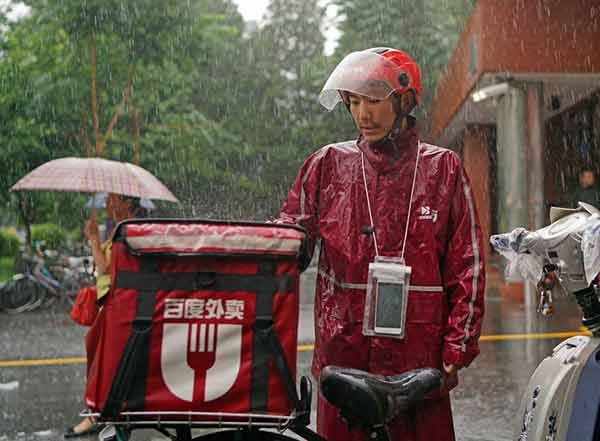

 |
|
[Photo/Xinhua] |
"Compared with traditional restaurants, we have different characteristics," he said. While regular restaurants need to be at a good location, and spend money on interior design and staff wages, eateries whose business comes mainly from takeout apps, save on such costs, and need to spend only on delivery, packing and service fees to the apps.
For instance, Jacky's Kitchen is just that - a kitchen, restaurant only in name, without any dining facilities.
Takeout apps depend on their delivery staff for whom summer and winter, when people are generally reluctant to dine outside, are peak seasons.
Delivery staff's income is linked directly to the number of deliveries they make, and whether or not they were made in time. Delays could lead to loss of income.
"Many orders are placed around meal time, and that piles pressure on me. But I try my best to ensure that customers get hot food," said Wang Xiaofeng, 24, a delivery woman in Beijing.
Most of her colleagues are men because of the nature of their work. She started to deliver food for Baidu Takeout in 2015, and has since taken 40 orders a day on average, earning up to 8,000 yuan a month. But her income tends to shrink in slack seasons.
You Haicheng, 30, a deliveryman from Meituan, another major takeout app in China, gets about 12 to 15 orders at lunchtime and has to deliver all within one-and-a-half hours.
"I'll deliver them based on which restaurant has prepared a dish already, so I don't have to waste time waiting for them to finish cooking."
Many customers empathize with delivery people if there are any understandable delays due to bad weather. "When someone shows he or she cares, I'm touched," You said, citing the case of a young woman who not only didn't complain when he delivered her food an hour late due to rain but gave him tissues to dry himself off.